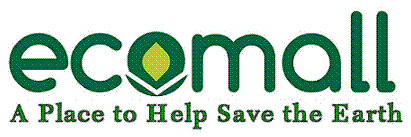

BIRD FEEDERS PROPERLY




Heat and humidity can take a toll on seed sitting in feeder. Higher temps and dampness demand that feeder be cleaned more frequently. When feeding birds, we encourage them to gather in non-normal populations. Large congregations of finches and others creates a skewed number of birds in a natural habitat. Should one bird become ill… disease may be spread rapidly.
Mold spores thrive in dark, damp spots, and when birds ingest these or moldy seed they can quickly develop respiratory issues. Often fatal, conjunctivitis or pox is rapidly spread through the feeders themselves. Sick birds just won’t look right, very lethargic (you might walk right up to them) with swollen eyes or eyelids. Feathers seem tattered or ruffled and an infected bird may appear “fluffed up” although it’s not cold out. You may even notice rapid breathing and/or difficulty eating/swallowing seeds.
Should this occur in your yard, it’s strongly advised to take down all feeders and simply quit feeding until birds disperse and leave the area - typically 1 to 2 weeks. Even if feeders are clean, it takes only one infected bird to start the process over again.
So with offering this inviting habitat and refuge comes a responsibility to keep feeders and feeding areas clean. There’s lots of cleaners and concoctions being marketed, with pretty or slick packaging and promises of sparkly clean feeders… but nothing beats good old bleach! We’re not saying to use or not use these special solutions, but why would you when bleach offers the same end result?
A ratio of 1:10 (bleach to water) poured in a spray bottle is perfect. When cleaning wooden feeders, it’s important to get down into any splits and crevices where bacteria and mold thrive. This is just one excellent reason for using recycled plastic feeders. They’re non-porous, so bacteria can’t penetrate the surface to grow nasty stuff deep down inside.
Bleach, water and a good scrub brush are the simple essentials. Scrub all surfaces and rinse well, rinse again to be sure all bleach has been removed. When cleaning a tube feeder, or one that’s difficult to reach all parts, disassembling it is best if possible. If not, a long tube-like cleaning brush made for cleaning feeders is ideal, it’s actually one of the best investments in your backyard bird hobby.
Allow the feeders to air-dry, fill with fresh seed and hang. In conjunction with thorough cleanings, check the ground below where said feeder(s) hang. Rake up any fallen seed and droppings and dispose of them in the trash so no other critters can get into the mess. Rubber gloves are always recommended for this part!
Keeping feeders and the ground below them clean helps ensure happy and healthy birds at your place!
Click below to e-mail this article to a friend |
|---|
Written by:Beth Wheeler, The Birdhouse Chick
RELATED LINKS:

| * * * IN-HOUSE RESOURCES * * * |
|---|